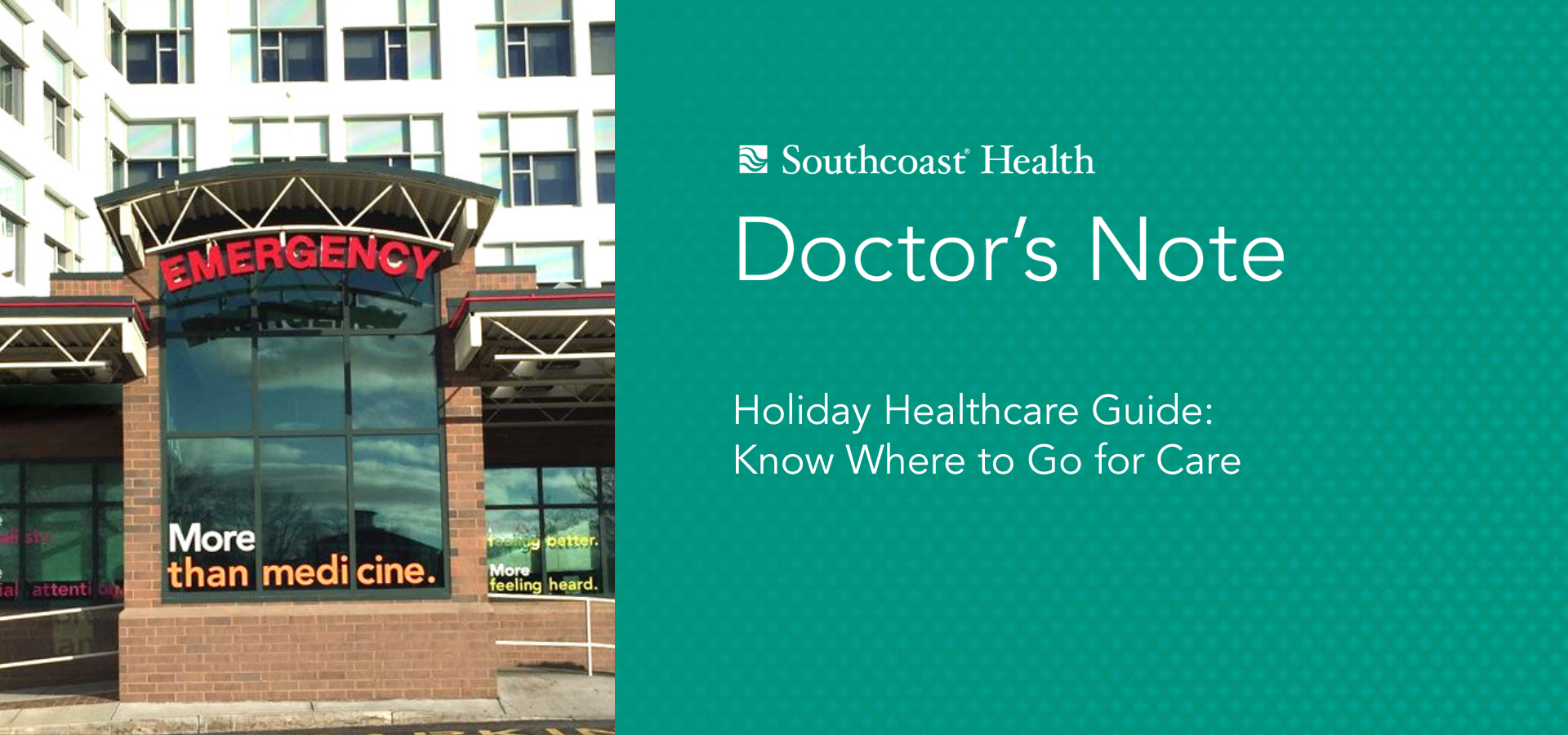
The holiday season is almost here! With festive gatherings and winter activities, it’s a joyful time of year – but it also brings increased risks for cold, flu and other seasonal health concerns. This month, Dr. Brian Tsang, Medical Director of the Emergency Department at Charlton Memorial Hospital, and Dr. Anil Shukla, Chair of the Emergency Department at St. Luke’s Hospital, offer their advice so you know where to go when it comes to seeking medical care – and enjoy a healthy holiday with your loved ones.
“Winter season respiratory viruses that cause simple colds in healthy patients often cause critical illness in patients with chronic diseases. This results in Emergency Department (ED) wait times even longer than current post-COVID standards,” says Dr. Tsang. “Urgent Care facilities can provide the same care as EDs for many conditions, with much shorter wait times. However, for some symptoms you should consider going straight to the ED rather than have the Urgent Care refer you there and wait twice. Also, if you can wait a few hours to be seen, it is a little-known fact that even on our busiest days, there is usually a lull between 2am and 8am, often with very short wait times.”
Here’s a breakdown of when to head to an urgent care center vs. the ED and what you can expect at each:
Urgent Care
When your primary care provider (PCP) isn’t available, urgent care centers provide care for health issues that aren’t life-threatening but still need prompt attention. Conditions that can typically be handled at urgent care centers include:
- Upper respiratory symptoms (nasal and sinus congestion, throat and ear pain, cough)
- Extremity injuries without deformity
- Wounds or burns with controlled bleeding
- Rashes or allergic symptoms without difficulty breathing
- Neck, back or other muscle pain without recent trauma
- Isolated urinary symptoms including burning, frequency, abnormal color
- Extremity infections without fever
In addition to shorter wait times, most urgent care centers make it easy for you to schedule your visit ahead of time. Southcoast Health Urgent Care also offers Telehealth on Demand visits by phone or video. If your condition requires a visit with a specialist, we offer Book It Urgent Care Direct Specialty Scheduling at all of our urgent care locations. This exciting feature allows our team to directly schedule a follow-up appointment for a variety of healthcare needs.
Emergency Department (ED)
“Emergency Departments are equipped to handle severe and life-threatening conditions, which require immediate, more intensive care,” says Dr. Shukla. He advises going to the nearest ED as soon as possible or calling 911 if you experience:
- Chest pain, difficulty breathing, swelling in arms or legs
- Abnormal heartbeat or pulse
- Bleeding from any source that is difficult to control
- Severe pain in head, neck, abdomen
- Neurologic symptoms including numbness, weakness, new severe headache, change in vision, speech, ability to walk, or mental status.
- Ingestion or toxic substances, intentional or unintentional
- Loss of consciousness, with or without seizures
- Severe psychiatric symptoms including hallucinations, delusions, thoughts of hurting yourself or other people
- Traumatic injury to head, neck, chest, abdomen
“Because emergency rooms are staffed with a wider range of specialists and advanced equipment, they’re the best choice for serious conditions,” says Dr. Shukla. “However, keep in mind that EDs operate on a triage system, meaning patients with the most severe conditions are treated first. This can lead to longer wait times for people with non-critical issues.”
The Bottom Line
This winter, choose the right level of care so you can get the help you need without unnecessary delays. For minor issues, if your primary care provider is unavailable, an urgent care center is often the quickest route. For severe conditions, call 911 or head to the ER without delay. Planning ahead can make wait times easier to handle. Bring a book or something to keep you comfortable while you wait.
Above all, take precautions to avoid illness by practicing good hygiene and getting recommended vaccinations such as flu and COVID-19. To learn about recommended vaccines for you and your family, visit the Centers for Disease Control and Prevention. Staying up to date on your vaccines can help reduce illness if you do get sick, so you can spend more time enjoying the season with your loved ones!
Special note: We understand that waiting can be difficult when you’re not feeling well. Please remember that we should all treat each other with kindness and respect. Southcoast Health has a Patient and Guest Code of Conduct in place to help improve everyone’s experience.

 Matt Guthrie
Matt Guthrie 